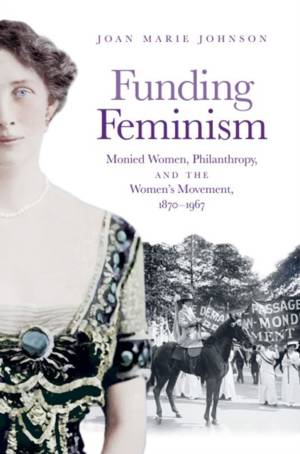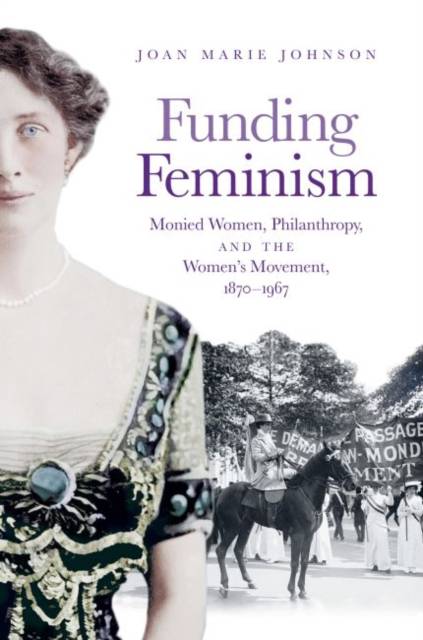
- Afhalen na 1 uur in een winkel met voorraad
- Gratis thuislevering in België vanaf € 30
- Ruim aanbod met 7 miljoen producten
- Afhalen na 1 uur in een winkel met voorraad
- Gratis thuislevering in België vanaf € 30
- Ruim aanbod met 7 miljoen producten
Zoeken
€ 49,95
+ 99 punten
Uitvoering
Omschrijving
Joan Marie Johnson examines an understudied dimension of women's history in the United States: how a group of affluent white women from the late nineteenth through the mid-twentieth centuries advanced the status of all women through acts of philanthropy. This cadre of activists included Phoebe Hearst, the mother of William Randolph Hearst; Grace Dodge, granddaughter of Wall Street "Merchant Prince" William Earle Dodge; and Ava Belmont, who married into the Vanderbilt family fortune. Motivated by their own experiences with sexism, and focusing on women's need for economic independence, these benefactors sought to expand women's access to higher education, promote suffrage, and champion reproductive rights, as well as to provide assistance to working-class women. In a time when women still wielded limited political power, philanthropy was perhaps the most potent tool they had. But even as these wealthy women exercised considerable influence, their activism had significant limits. As Johnson argues, restrictions tied to their giving engendered resentment and jeopardized efforts to establish coalitions across racial and class lines.
As the struggle for full economic and political power and self-determination for women continues today, this history reveals how generous women helped shape the movement. And Johnson shows us that tensions over wealth and power that persist in the modern movement have deep historical roots.
As the struggle for full economic and political power and self-determination for women continues today, this history reveals how generous women helped shape the movement. And Johnson shows us that tensions over wealth and power that persist in the modern movement have deep historical roots.
Specificaties
Betrokkenen
- Auteur(s):
- Uitgeverij:
Inhoud
- Aantal bladzijden:
- 320
- Taal:
- Engels
- Reeks:
Eigenschappen
- Productcode (EAN):
- 9781469659077
- Verschijningsdatum:
- 1/02/2020
- Uitvoering:
- Paperback
- Formaat:
- Trade paperback (VS)
- Afmetingen:
- 155 mm x 231 mm
- Gewicht:
- 408 g

Alleen bij Standaard Boekhandel
+ 99 punten op je klantenkaart van Standaard Boekhandel
Beoordelingen
We publiceren alleen reviews die voldoen aan de voorwaarden voor reviews. Bekijk onze voorwaarden voor reviews.











